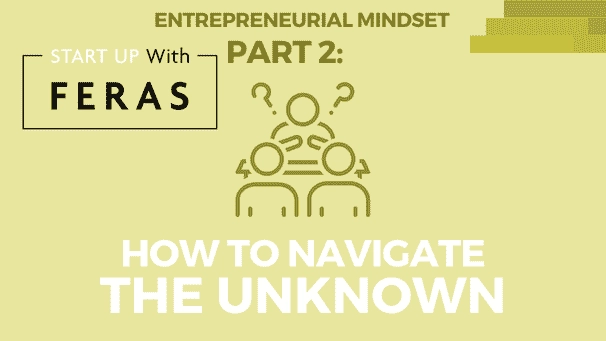3 People Skills Every Startup Entrepreneur Needs

“Mastery lies on an infinite continuum, and as a result we will never reach the end. We can, however, see to it that we are as far along that continuum as our circumstance allows.”
— Chris Matakas, Jiu Jitsu Black Belt, Author and Speaker
There’s a lot of online chatter about leadership skills for entrepreneurs. Well, most leadership skills are just general people skills. Even if your new venture consists only of yourself at the beginning, you’ll need to engage effectively with other people to get off the ground. So if you want to establish and then grow your business in consulting, professional services, or really any field, your people skills will be critical.
The 3 Leadership/People Skills
The list below is not complete, but in my opinion, these are the 3 skills that every business owner should develop. I offer this list with a disclaimer: you don’t need to be great at all of them.
No one can excel at everything. But that doesn’t mean you can’t improve in these areas to a certain level of proficiency.
1. Listening Actively
Most people are aware of the difference between just “listening” and active listening. Listening involves scanning for necessary information, while active listening involves being present, ensuring that the other person feels heard.
Famed author and professor Steven R. Covey said, “Most people don’t listen with the intent to understand; they listen with the intent to reply.” Research backs this up, showing that most of us are listening with only 25% efficiency, based on the scale used by the researchers.
When you develop the skill to listen actively, you’re momentarily suspending your desire to “just get on with it” and making sure the person you’re listening to feels heard and also safe to communicate what they’re intending to say. Feeling safe fosters trust, and I think you’ll agree that trust is the bedrock of business relationships.
To listen more actively, try:
- Closing all electronic devices and silencing phones
- Focusing on the other person, paying attention to their body language and tone
- Clarifying their meaning with probing questions like, “How did you come to that conclusion?” or “What do you mean when you say X?” (Use tact so you don’t put anyone on the defensive.)
- Summarizing what you heard to ensure clear understanding. “If I’m hearing you right, you’re concerned that your competitors have more effective marketing programs, correct?”
For someone not naturally skilled at active listening (like me), this can be challenging. I’ve worked hard at developing this skill (my wife says I still need a lot of help here 🙂), and the improvement I have witnessed in my business and personal relationships has been worth the effort.
2. Developing Others
The skill of developing others goes beyond their job skills. You may be at the early stages of your consulting or professional services business, but developing your people will be critical to continual growth and the creation of high-performing teams, even if right now your team includes a virtual assistant you’re bringing in occasionally to help.
According to this Forbes article, the skill of developing others falls into these 4 categories:
- Performance management. Providing goal guidance and offering constructive/critical feedback.
- Involving team members. Engaging with the team, letting them have input and ownership in projects and initiatives.
- Recognition. Recognizing a team member’s contribution, initiative, and effort apart from the end results.
- Job fit. Like the skills we’re discussing, recognize where a person’s strengths lie, where they need training, as well as recognizing what tasks and projects they should avoid. Great workers can seem abysmal when placed in the wrong role.
3. Building Key Relationships
Even the most people-focused person among us sometimes needs to work on communicating with consideration and fostering authentic connections with others, including employees, vendors, partners, and other stakeholders. There’s a tendency in business to focus only on results-oriented contact: a quick call to get an answer you need, a blunt email, or a terse response to a request for time off.
We’re human. I’ve had more than my fair share of shortcomings in this department. We all have off days. So make it a point to connect with your key people besides those times when you need something.
Learn about their business, their background, their family. Send a random note of encouragement. Notice when someone did something right no matter how small. Give gifts when appropriate, and acknowledge acts of kindness. When possible and prudent, connect outside of normal work hours in relaxed social settings.
How To Develop These Skills
Maybe one or two of the above items jumped out at you. If not, ask a partner or close friend to give you some honest feedback about where you might need improvement.
Pick just one skill to start. Then, create a daily plan. If you can, seek out someone in your network who excels at the skill and ask for help. Tell them that you’re committed to work on this skill and ask them to give constructive feedback.
And then track your daily and weekly progress. You can use a simple scale of 1 to 10. At the end of the day, rate how well you did. Where did you improve? Was there a particular task or situation you wished you had handled better?
Focus on the improvements. You probably will never get tens in each category, but by working on these key skills, I can promise you that you will reap many benefits along the way.
Key Takeaways and Actions
- Listen actively: moving beyond the facts of a conversation, ensuring you’re listening to what’s not being said and clarifying what you heard.
- Develop others: as you begin to grow a team, let those you work with craft goals, giving them feedback, challenging them, and making sure the job fits them and gives them the opportunity to grow.
- Building key relationships: try to know and relate to the people and stakeholders in your business beyond the normal operational conversations.
- Get feedback: ask for input from someone in your network who excels at communication, and gauge your own progress in strengthening your communication stills.




